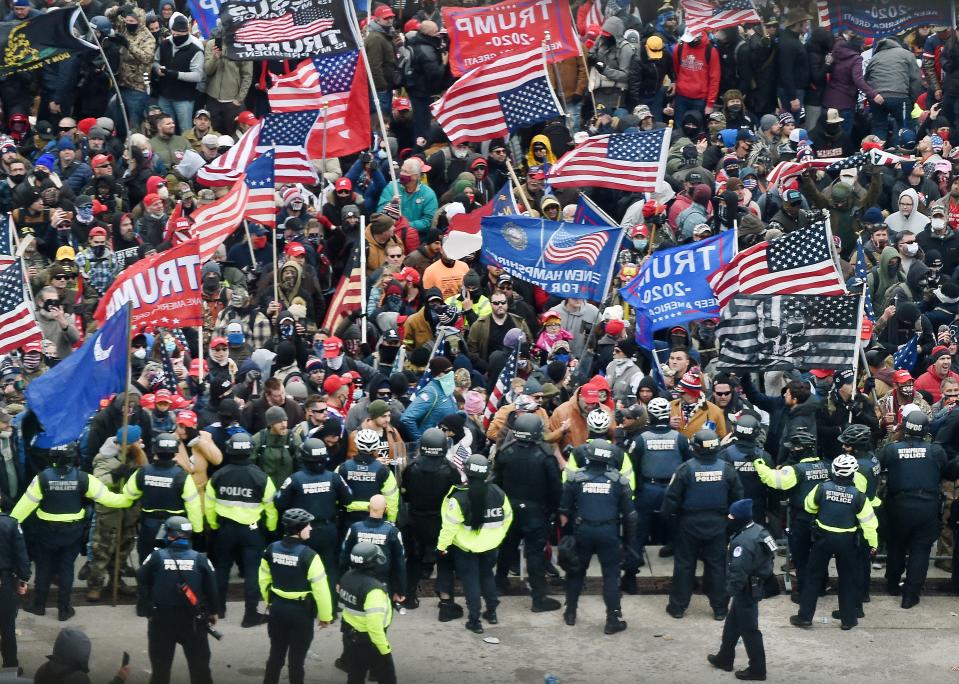Supreme Court to decide case related to Jan. 6 attack that could undermine Trump charges
WASHINGTON ? The Supreme Court agreed Wednesday to take up an appeal from a man involved in the Jan. 6, 2021, attack on the U.S. Capitol who claims prosecutors overstepped the law by charging him with an Enron-era crime meant to deal with financial shenanigans.
The case has been closely watched in part because more than 200 people have been charged with violating the law at issue ? a prohibition on obstructing "official proceedings" ? including former President Donald Trump. If prosecutors could secure convictions for the felonies, they could try to tack on 20 years to prison sentences.
By granting the case, the Supreme Court is juggling a second high-profile matter tied to Jan. 6 riot and Trump. The justices are also weighing whether to take up an unusual request from special counsel Jack Smith to rapidly decide whether Trump can claim immunity from federal criminal charges tied to the 2020 election.
The Supreme Court has given Trump until next week to respond to that appeal.
In the case granted Wednesday, Joseph Fischer appealed one count of his indictment, claiming that the crime ? enacted by Congress in 2002 in response to the Enron financial meltdown ? was intended to punish people for tampering with evidence and not people who participated in a riot.
Fischer described the provision as an "anti-shredding" law in a court document.
Explainer: Jan. 6 defendants bring cases to Supreme Court. Here's what it could mean for Donald Trump
But the Justice Department argued the counting of electoral votes ? interrupted as lawmakers fled for their safety and police battled with rioters ? qualified as an “official proceeding.” The law, prosecutors say, would cover someone lying to a grand jury or “burning a building to conceal the bodies” of murder victims.
“It also includes storming the Capitol to derail a congressional proceeding,” the department told a federal appeals court last year.

A U.S. District Court judge agreed with the defendants, ruling the law required them to have taken some action involving evidence to be charged. A divided appeals court in Washington, D.C., reversed that decision, siding with prosecutors. The 2-1 majority included one judge appointed by President Joe Biden and one by Trump.
This article originally appeared on USA TODAY: Supreme Court agrees to decide appeal from Jan. 6 defendant
